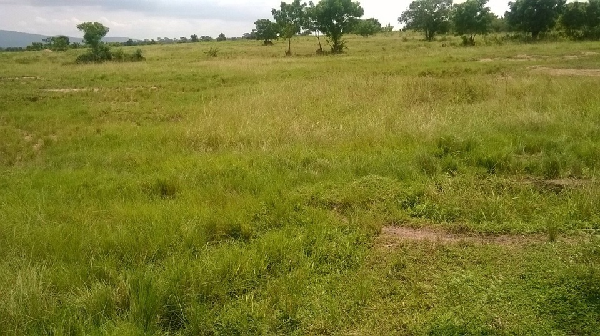
Education on new Land Act critical
Land acquisition in the country is beset with a lot of constraints. These include insecurity of tenure, inadequate land policy and indiscipline in the land market, leading to fraud, conflicts, frustration and anxiety. Till now, acquiring land in the country has not been smooth and easy.
Although there are large tracts of land in the country, there are also many related problems with acquiring the right to land.
Advertisement
The blame, for all the inherent challenges, can be mostly laid squarely on the doorstep of the structure of the legal framework for land administration.
The legal regime for land administration consists of constitutional provisions, policy instruments, statutory enactments, judicial decisions, common law principles and customary laws and practices which have been enacted and developed or observed over the years to regulate land rights generally.
The courts have also ruled on customary law issues, resulting in a body of legal precedents for some land-related customs.
Currently, 166 state laws that regulate land administration and establish 13 different mandates for different agencies exist in the statute books.
There are many pieces of legislation and judicial decisions on land which have a significant impact on the constitutional, statutory, common and customary laws on land.
While a number of these laws and decisions clarify the various legal rules, others confound them.
Aside from conflicts between various judicial decisions, sometimes, from courts of coordinate jurisdiction whose judgements are of equal legal force, there are also inconsistencies between some statutes and the 1992 Constitution.
The result is a confusion that has contributed to the increase in the incidents of land litigation, as various parties contest the import and practical consequences of the varied interpretations of land laws in Ghana.
This is why the Daily Graphic is happy with the new Land Act, 2020 (Act 1036) which marks a watershed for land administration in Ghana.
We are pleased because the Act will help revise and consolidate the laws on land, with the view to harmonising them to ensure sustainable land administration and management and effective land tenure and to provide for related matters.
One of the good points of the Act, in our view, is that it will help remove the overlaps and inconsistencies that are currently associated with land legislation.
It will potentially cure the pain of land acquisition, as it will enhance land service delivery through efficiency, cost-effectiveness and enhanced accessibility to land.
The Act holds that chiefs, clan heads, family heads or any authority in charge of management of stool or skin, clan or family lands are accountable as fiduciaries.
As fiduciaries, these “managers” must be transparent, open, fair, and impartial in making decisions that affect the lands they manage. They are also subject to disciplinary sanctions, if they fail to comply with their fiduciary duties.
The new law creates a Customary Land Secretariat which imposes an obligation on stools, skins, clans or families to establish the Secretariat for the management of their respective lands. A notable function is the duty to keep and maintain accurate and current records of land transactions within their respective areas of operation.
Instructively, in keeping with the digital age, the law has introduced electronic conveyancing. Land or interests in land can now be transferred by an electronic information system.
Another good thing about this law is that parties are required to exhaust all procedures under the Alternative Dispute Resolution Act, 2010 (“Act 798”) before any action involving land in a registration district can be commenced in court.
The Daily Graphic holds the view that the Land Act provides a critical opportunity to the government to address both historic and current challenges and issues in the land sector, with far-reaching repercussions on the nation’s socio-economic development.
We believe that the Ministry of Lands and Natural Resources and the related agencies under its ambit must undertake comprehensive public education on the Land Act so that the citizens will know their rights and responsibilities as land owners and beneficiaries of family and stool lands.




